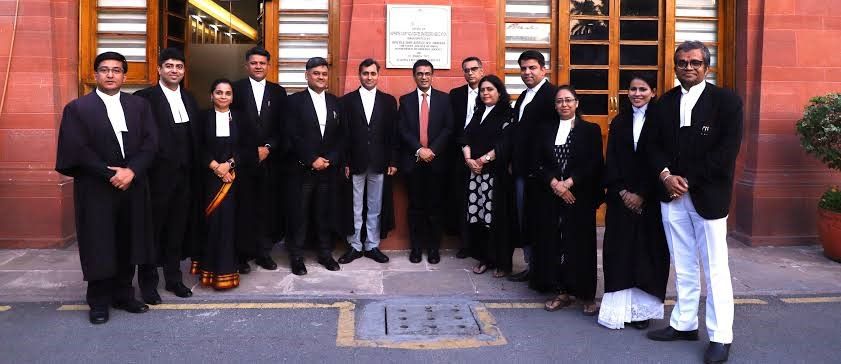Senior Advocates In India : Balancing Tradition And Reforms
Syllabus:
GS 2:
Government Policies and interventions.
Why in the News?
The evolving role and designation of Senior Advocates have garnered attention due to debates on inclusivity, transparency, and the impact of 2017 reforms. Issues like the increased number of Senior Advocates, gender representation, and economic accessibility raise questions about balancing tradition with modern judicial demands.
Evolution of Senior Advocates: From Elite to Inclusive
Historic Exclusivity
- Initially, the designation was rare, with only a handful of Senior Advocates.
- Lawyers like Nani Palkhivala and Fali Nariman were part of this elite group, commanding immense respect.
Recent Democratization
- The number of Senior Advocates has increased significantly, with around 1,200 designations in recent years.
- Critics argue this expansion has diluted the exclusivity and perceived value of the designation.
- However, it has fostered inclusivity, enabling younger and first-generation lawyers to compete.
Increased Representation
- Women and first-generation lawyers now have greater opportunities.
- Notable milestones include the designation of Leila Seth in 1977 and increased female representation post-2017 reforms.
Understanding the Role of Senior Advocates
Definition and Significance
- A Senior Advocate is a distinguished designation conferred by the Supreme Court or High Courts.
- It reflects a lawyer’s expertise, reputation, and contributions to the legal profession.
- Senior Advocates cannot engage directly with litigants; they must be briefed by an Advocate-on-Record.
Qualifications for Designation
- Requires at least 10 years of significant experience in the legal field.
- Must demonstrate legal acumen, publications, and contributions to jurisprudence.
- Granted through an evaluation system based on merit, integrity, and past achievements.
Responsibilities and Constraints
- Senior Advocates are the “big guns” of the Bar, influencing key legal outcomes.
- They handle only select, high-profile cases, supported by a legal team.
- The role symbolizes prestige, sparking debates on exclusivity and elitism.
Senior Advocates in India: Key Highlights
- Definition: Designated under Section 16 of the Advocates Act, 1961, Senior Advocates possess exceptional knowledge and experience.
- Eligibility: Requires 10+ years of practice and legal expertise, along with the advocate’s consent.
- 2018 Guidelines: Introduced a committee-based designation process, discouraging secret ballots.
- 2023 Guidelines: Revised point-based evaluation, age relaxation, and yearly applications, emphasizing judgments.
- Committee: Comprises the CJI, two senior judges, the AGI, and a bar-nominated member.
- Significance: They contribute to upholding the Rule of Law and advancing the legal system.
Challenges and Criticisms of the Current System
Dilution of Standards
- Critics argue the rising number of designations has undermined its original intent of recognizing exceptional merit.
- Concerns include popularity over consistent legal excellence influencing designations.
Gender and Diversity Gaps
- Despite progress, female representation remains low.
- Systemic barriers prevent many women lawyers from achieving the designation.
Economic Barriers
- High fees charged by Senior Advocates render their services inaccessible to lower-income litigants.
- Excessive commercialization could harm the profession’s ethos.
Judicial Influence and Favoritism
- Allegations of favoritism in the designation process persist.
- Judges may favor lawyers they are familiar with, creating perceptions of bias.
Reforms and Way Forward
Introduction of Objective Criteria
- The 2017 Supreme Court guidelines introduced a point-based system for evaluating candidates.
- Criteria include legal experience, publications, and significant contributions to law.
Suggestions for Improvement
- Publish detailed reasons for granting or denying designations.
- Encourage regional balance for equal opportunities across states.
- Offer mentorship programs for underrepresented groups, including women and first-generation lawyers.
Reducing Economic Inequities
- Cap fees for cases involving public interest litigation or economically weaker litigants.
- Promote pro bono cases by Senior Advocates.
Promoting Diversity
- Implement affirmative action to boost representation of marginalized communities.
- Recognize non-traditional achievements like contributions to academia or public advocacy.
The Road Ahead: Balancing Tradition and Modernity
Maintaining Prestige
- Senior Advocates shape jurisprudence and mentor young lawyers.
- Inclusivity is vital, but preserving the designation’s association with merit is equally important.
Aligning with Global Standards
- Indian courts can learn from practices like the Queen’s Counsel system in the UK.
- Balancing tradition with innovation will enhance the designation’s credibility.
Building a Robust Legal Community
- Senior Advocates should foster a collaborative and equitable legal environment.
- Their influence can strengthen trust in the judiciary and the legal profession.
Conclusion
The designation of Senior Advocates stands at a crossroads, reflecting progress and challenges. While inclusivity has improved, maintaining the designation’s prestige and fairness is critical. Reforms addressing diversity, transparency, and accessibility will ensure alignment with the evolving needs of India’s judiciary.
Mains Practice Question
Discuss the significance of the Senior Advocate designation in the Indian judiciary. Highlight the challenges associated with its current framework and suggest measures to enhance inclusivity and transparency while preserving its merit-based essence. (250 words).
Associated Article:
https://universalinstitutions.com/strengthening-india-us-relations/




